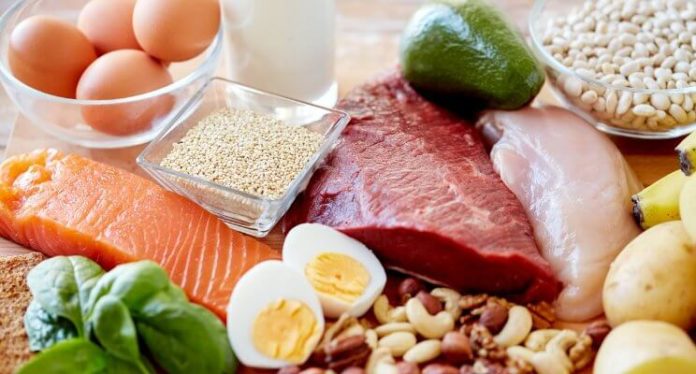
How much protein can you absorb in one meal? One of the ongoing claims in the fitness industry is that your body can only absorb a limited amount of protein at a time. The most popular of all is that you can only absorb 30 grams per meal.
Now, before we go any further, let’s dispel this absorption limit right away. The body needs amino acids for virtually all physiological functions, thus, will absorb almost all of the protein you consume.
The small intestine alone will utilize roughly half of all the amino acids in your body. Factor in protein needs of all other organs; the notion that the body suddenly stops absorbing protein after 30 grams is completely misguided.
However, the interest is in building muscle. Even if our body can absorb all the protein, the question is:
Contents
how much of it will actually go to muscle growth?
Two studies in the matter did conclude a potential limit to the rate of muscle protein synthesis. One found that, after a resistance training bout, consuming 40 grams of whole egg protein in one meal did not stimulate muscle protein synthesis more than 20 grams for active males. In another study, 30 grams of protein stimulated protein synthesis as much as 90 grams of protein in one meal.
But, there are glaring limitations to both studies. In the first one, subjects only performed 12 sets of leg training, which might not be enough to optimally stimulate exercise-induced protein synthesis signaling. On top of that, 20 grams of protein through 6 meals adds up to only 120 grams of protein per day, which goes against the heavy research showing that greater muscle growth is achieved with much larger protein intakes. The second study simply falls short on overall protein. At only 30 and 90 grams per day, we are looking at well below the needs of someone that trains regularly, especially larger men.
Moreover, both were only single trial studies.
Looking at a 2-week study, we see that eating 80% of daily protein in one sitting increased protein synthesis more so than spreading out protein evenly across 4 meals for elderly women. A follow-up study found no differences using a similar protocol for young women. Considering that both were done with women and no resistance training, suffice to say, active lifters, especially men, will have a greater protein demand.
However, let’s say that there is an actual 30-gram limit to protein synthesis. It still ignores the other important part to the muscle building equation:
Protein breakdown.
When we look at the research in terms of protein breakdown, we start piecing the whole picture together.
In 2013, a study comparing 70 grams of protein per meal versus 40 grams of protein, with total daily protein equal, found, although the 70-gram group only had a slight increase in protein synthesis, it significantly reduced the rate of muscle breakdown.
There was also one key difference in this study. In the two first studies showing no benefit to eating more protein per meal, subjects were in a fasted state and consumed protein with nothing else.
In this study, as well as the previous studies on women, subjects consumed their protein as part of a mixed whole meal, like the way that we all usually eat. Mixed meals provide important changes that might drastically improve protein absorption.
One is that, in the presence of fats and protein, the hormone cholecystokinin kicks in and rapidly slows down gastric emptying, giving your digestive tract more time to absorb all the nutrients.
Also, with the presence of carbs, insulin levels will rise dramatically. Insulin drives not only energy fueling, but also signals for protein synthesis and inhibits protein breakdown, shifting the body into a complete anabolic state, optimal for muscle growth. And if we keep combing the research, we’ll find no differences in net nitrogen balance, a measurement indicative of protein use in the body, regardless of the amount of protein consumed per meal. And all of this information before even discussing research on intermittent fasting.
Long story short, IF’ers eating all of their protein in a short amount of time, also had no significant differences in terms of muscle composition than subjects on a standard diet.
So, let’s revisit the question:
Is there a protein limit for muscle growth?
Yes, but it’s much higher than the mythical 30 grams, and quite possibly higher than any practical per-meal consumption. Best practice is to simply have protein in all of your main meals and make sure you meet your total daily protein needs.
End of the day, this is more of the constant myths in the fitness industry.

![Don’t Start Weighted Calisthenics Until You Read This [Ultimate Guide] weighted calisthenics guide](https://chimerabody.com/wp-content/uploads/2018/09/weighted-calisthenics-guide.jpeg)





